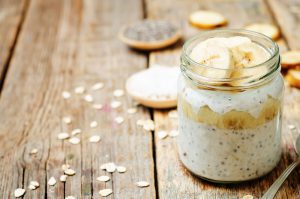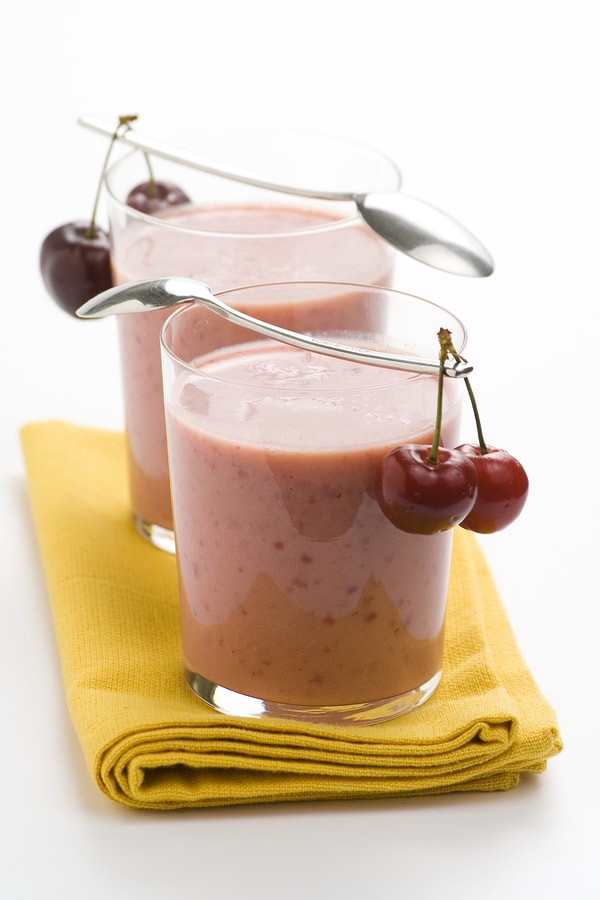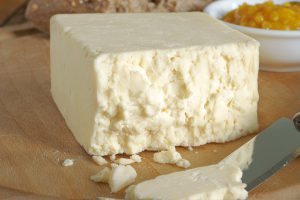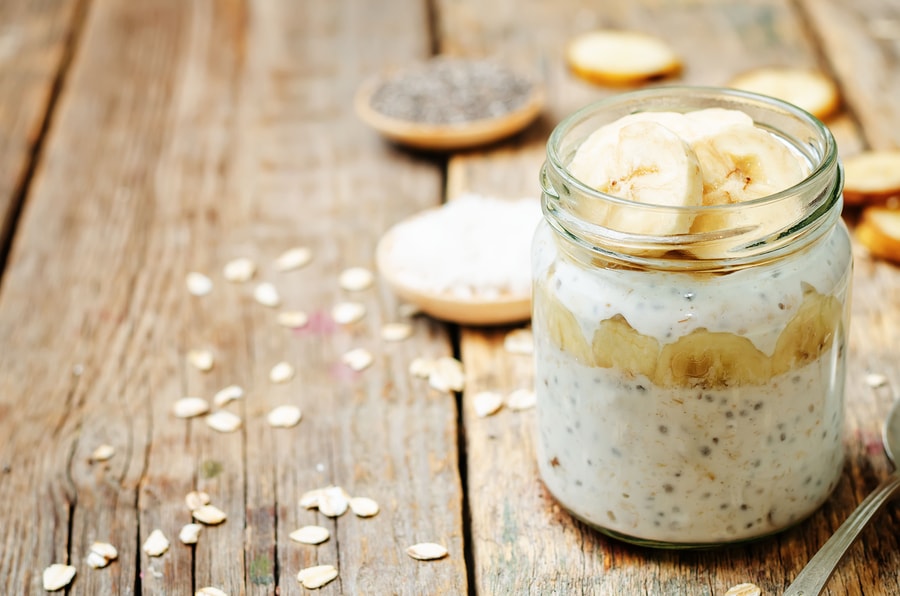What kind of tasty foods aid sleep? Are there healthy recipes to make you sleep like a baby? In the same way that your daily diet affects your weight, so too can it change the regularity of your sleeping patterns.
It’s no longer enough to count the calories and simple carbs in your diet. To truly eat healthily, you need to also factor in the chemicals in your food that can directly affect relaxation and sleep.
It may sound like a tedious task at first, but it doesn’t have to be – not if you know about the foods that aid sleep. Plus I'm going to share some quick and easy recipes to aid sleep guaranteed to aid your goals of having a good night’s sleep.
Foods That Aid Sleep
#1 Yogurt with Bananas (and optional ingredients)
 Slice a banana and put it in a cup of unsweetened yogurt – enjoy.
Slice a banana and put it in a cup of unsweetened yogurt – enjoy.
This simple snack not only satisfies your cravings for something sweet and creamy, it also comes packed with sleep-inducing natural chemicals.
Yogurt is an easy-to-digest food that contains tryptophan, which is an amino acid that’s used for the production of melatonin and serotonin – hormones and chemicals that induce sleepiness by regulating your body’s circadian rhythms (aka your body’s sleep clock).
Eating bananas can raise your potassium and magnesium levels, prompting muscle relaxation and readying you for sleep.
If you have some almonds, throw it into the mix. Almonds are a good source of tryptophan as well as magnesium. You can also add complex carbohydrates like oatmeal, granola, flax-seed, or whole-grain crackers for faster tryptophan absorption in the body.
#2 Lemon Balm Hummus

The hardest part about this recipe is grinding the chickpeas into hummus.
You can either use a mortar and pestle or make things easier with a blender or a food processor.
Grind down or blend 300g of drained canned chickpeas with 3 tablespoons of olive oil.
Go easy on the salt and pepper as those might negate this recipe’s calming effects.
More importantly, don’t forget to add a couple of lemon balm leaves to taste. Lemon balm is a natural relaxant that’s been in use since the European Middle Ages. In 2003, it’s been proven to indirectly influence sleep through its calming and mood-improving effects. Its refreshing citrus smell also awesomely complements the savory goodness of homemade hummus.
Meanwhile, the main ingredient, chickpeas, is a great source of vitamin B6 (which influences melatonin production) as well as choline, a water-soluble nutrient that helps with not just sleep but also muscle movement and memory.
You can spread this sleep-inducing hummus on any whole-grain cracker or bread of your choosing.
#3 Cherry-Banana Almond Milk Smoothie
 For this one, you’re going to need a blender.
For this one, you’re going to need a blender.
Combine 2-4 cubes of ice, a glass of almond milk, either an ounce of tart cherry juice or a couple cherries, and a banana into a blender and turn it on.
Just like with yogurt, make sure that the almond milk you use is unsweetened or is low in carbohydrates and sugar.
Otherwise, it could heighten your blood sugar levels, leaving you restless and unable to sleep.
Cherries, the other essential ingredient in this smoothie, are known to be one of the few foods that naturally contain melatonin.
If you can’t find some pitted cherries to blend into your smoothie, a bit of tart cherry juice will do. Both cherries and tart cherry juice have the added bonus of being effective at treating inflammation.
#4 Cheshire Cheese, Spinach, Walnuts, and Watercress Salad
 Fill a medium-sized bowl with the following: half a handful of spinach, half a handful of watercress, about 200g worth of Cheshire cheese chunks, and 3 tablespoons of olive oil – toss until satisfied.
Fill a medium-sized bowl with the following: half a handful of spinach, half a handful of watercress, about 200g worth of Cheshire cheese chunks, and 3 tablespoons of olive oil – toss until satisfied.
In a week-long study by the British Cheese Board involving 200 volunteers, different cheeses were found to influence dreams.
Cheshire, in particular, was linked to a lack of dreams during a relaxed sleep. Meanwhile, spinach and watercress are both dark green leafy vegetables that are known to be good sources of magnesium, just like walnuts (or alternatively, almonds) – both of which are also known to contain tryptophan.
You can also add crusty whole-wheat bread to this salad, adding tryptophan-activating complex carbohydrates to the mix.
Eat at Least 2-3 Hours Before Sleeping
Just because these recipes can promote sleep doesn’t mean you should gorge on them right before bedtime.
Eating before bed can be disastrous for sleep. It’s better to put at least 2-3 hours of digestion time between your last meal of the day and your actual bedtime.
Apart from letting your stomach finish its work before you go to sleep, this also gives your body ample time to activate and synthesize the sleep-inducing chemicals and hormones that you just ate.


